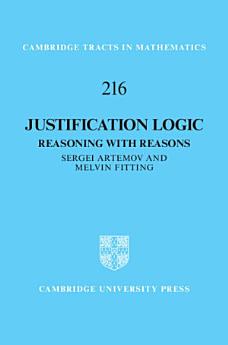Justification Logic: Reasoning with Reasons
આ ઇ-પુસ્તક વિશે
લેખક વિશે
Sergei Artemov is Distinguished Professor at the City University of New York. He is a specialist in mathematical logic, logic in computer science, control theory, epistemology, and game theory. He is credited with solving long-standing problems in constructive logic that had been left open by Goedel and Kolmogorov since the 1930s. He has pioneered studies in the logic of proofs and justifications that renders a new, evidence-based theory of knowledge and belief. The most recent focus of his interests is epistemic foundations of game theory.
Melvin Fitting is Professor Emeritus at the City University of New York. He has written or edited a dozen books, and has worked in intensional logic, semantics for logic programming, theory of truth, and tableau systems for non-classical logics. In 2012 he received the Herbrand Award from the Conference on Automated Deduction. He was on the faculty of the City University of New York from 1969 to his retirement in 2013, at Lehman College, and at the Graduate Center, where he was in the Departments of Mathematics, Computer Science, and Philosophy.








